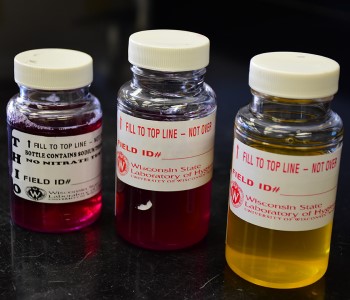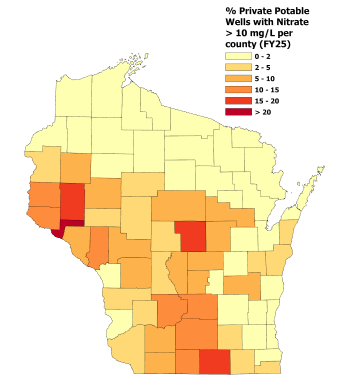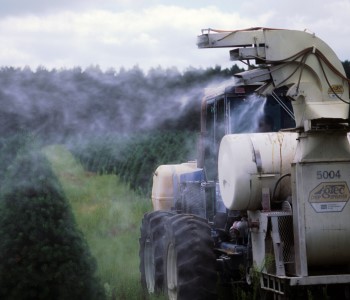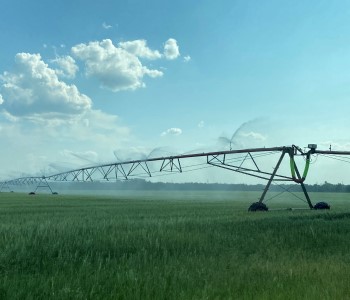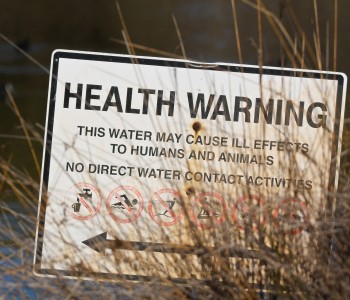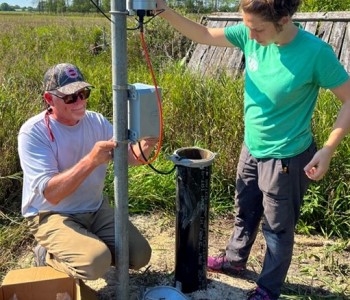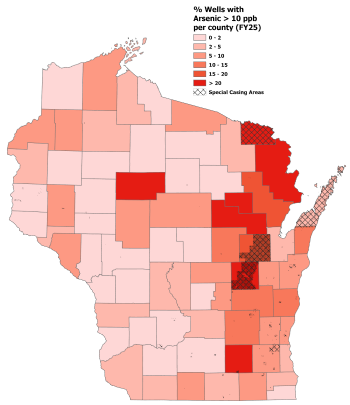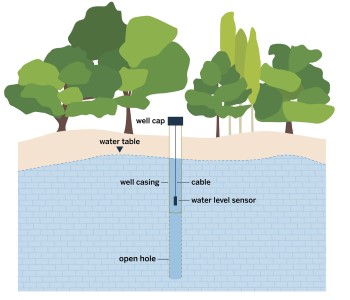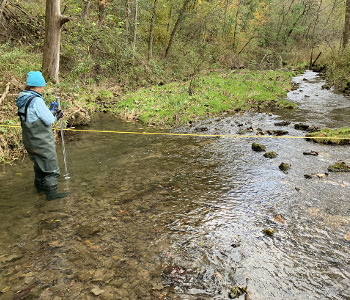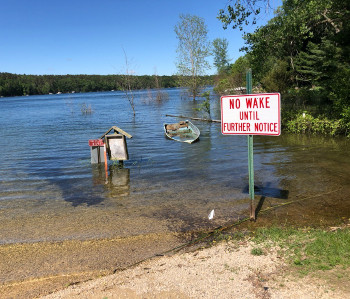Recommendations
GCC Report to the Legislature
The GCC identifies its recommendations for future groundwater protection and management.
Primary recommendations
Address PFAS contamination in groundwaterPerfluoroalkyl and polyfluoroalkyl substances (PFAS) are emerging contaminants in Wisconsin groundwater. PFAS have been detected in both municipal and private drinking water sources (see PFAS section of the report). Exposure to PFAS has been shown to have detrimental health effects including the potential to cause cancer. Public water systems in Wisconsin are required to comply with state drinking water maximum contaminant level (MCL) standards under ch. NR 809, Wis. Adm. Code. In 2022, a Wisconsin NR 809 MCL standard was established for a combined limit of 70 ng/L PFOA + PFOS in public drinking water. However, the U.S. Environmental Protection Agency (EPA) has recently finalized much more stringent MCLs—setting individual limits at 4 parts per trillion (ppt) for PFOA and PFOS and establishing additional MCLs for other PFAS compounds, including PFHxS, PFNA, PFBS and GenX. Given these developments, the GCC recommends:
While NR 809 standards protect residents on public water systems, those relying on private potable wells remain unprotected unless PFAS are regulated in groundwater. Ensuring safe groundwater quality requires enforceable state groundwater standards under ch. NR 140 Wis. Adm Code. Currently, Wisconsin has no established NR 140 groundwater standards for any PFAS. In 2019, DNR initiated a NR 140 rulemaking process to establish a combined groundwater standard of 20 ppt/nanograms per liter (ng/L) for PFOA and PFOS. However, the Natural Resources Board (NRB) did not approve proposed NR 140 standards in 2022. In 2021, the DNR began a new NR 140 rulemaking process for 16 additional PFAS, but the scope statement for that rulemaking expired in September 2023 and the effort stopped. In August 2022, a third NR 140 rulemaking effort was initiated to establish groundwater standards for four PFAS: PFOA, PFOS, PFBS and HFPO-DA (GenX), based on recommendations from DHS. This rulemaking was withdrawn in light of new scientific evidence and updated DHS recommendations. A new NR 140 rulemaking effort is currently under way to establish state groundwater standards for six PFAS compounds: PFOA, PFOS, PFHxS, PFBS, PFNA and HFPO-DA/GenX, based on the new DHS recommendations. The GCC recommends:
While PFAS compounds are known to be present in groundwater resources, identifying their sources is crucial for optimizing sampling strategies and site cleanup efforts. Moreover, PFAS contamination is not limited to groundwater; it also occurs in other media such as biosolids and surface water. Since these media can act as contaminant sources, potentially directly interacting with groundwater, understanding the levels of PFAS in them is essential for protecting our drinking water supply resources. Ongoing monitoring is critical to assess the extent and distribution of PFAS contamination across the state. In parallel, continued research is needed to advance our understanding of PFAS fate, transport and behavior in the environment. Therefore, GCC recommends:
|
Address nitrate contamination in groundwaternitrate standard by county. / Photo credit: DNR Nitrate that approaches and exceeds unsafe levels in drinking water is one of the top drinking water contaminant concerns in Wisconsin and poses known health risks. Areas of the state with a higher intensity of agriculture activity generally have higher nitrate levels in wells. To protect drinking water sources and safeguard public health, agencies need to implement improved strategies to reduce nitrogen losses and contamination of groundwater. Over the past two decades, approximately 7% of private wells in Wisconsin have exceeded the nitrate health standard of 10 milligrams per liter (mg/L), with exceedance rates surpassing 20% in some counties. Despite the widespread nature of this issue, only an estimated one-third of private well owners have ever tested their water. Limited testing and high variability at the local level make it difficult to assess long-term nitrate trends in groundwater. County well monitoring programs have helped local communities identify groundwater quality issues and target conservation practices more precisely. These programs play a vital role in strengthening data collection and increasing awareness among residents. To improve public awareness, strengthen data and better track groundwater quality trends, the GCC recommends:
Contaminated wells require costly interventions. Since October 2022, DNR allocated more than $10M to private well owners or non-community public water systems affected by groundwater contamination through the American Rescue Plan Act (ARPA) Well Compensation and Well Abandonment Grant Program for well replacement, reconstruction, treatment and/or abandonment of existing wells. This federally funded program is expected to end in FY26. Once these funds are exhausted, only Wisconsin’s statutory NR 123 well compensation program will remain. That program currently limits eligibility to wells with nitrate levels above 40 mg/L, and excludes small public water systems altogether. As a result, many impacted households, and customers of small systems, will be left without access to financial assistance, increasing their exposure to drinking water contaminants and the health risks associated with that exposure. Therefore, the GCC recommends the following actions:
Most of the nitrate contamination in Wisconsin’s groundwater is associated with agricultural activities. During common agricultural practices, a portion of applied nitrogen is lost to the environment—including leaching into groundwater. These losses are influenced by factors such as crop type, soil characteristics, weather conditions and nutrient management strategies. While nutrient management planning is widely promoted in the state, existing tools and standards often fall short in accurately capturing nitrate loss risks at the local scale. At the same time, farmers and land managers need better access to data, decision-support tools and targeted outreach to adopt practices that reduce nitrogen losses while maintaining agricultural productivity. To address these gaps and reduce nitrate contamination from agricultural sources, the GCC recommends implementing agricultural practices that protect groundwater from nitrate by:
|
Address pesticide contamination in groundwatertrees at tree farm near Wautoma. / Photo credit: DNR. A 2023 statewide survey of agrichemical in groundwater conducted by DATCP found that one or more pesticides are estimated to be present in over 40% of private drinking water wells in Wisconsin. Of the 29 pesticides detected in DATCP’s 2023 survey, fewer than half have established NR 140 groundwater quality standards. This includes the neonicotinoid insecticides, which are currently classified as emerging contaminants. Neonicotinoids have been detected in approximately 5% of wells in randomized statewide sampling and in up to 40% of wells in targeted (biased) sampling. Neonicotinoids and other pesticides compounds were included in NR 140 rulemaking efforts Cycle 10 and Cycle 11. Cycle 10 was not approved by the Natural Resources Board in 2022, and the rulemaking scope statement for Cycle 11 expired before a rule could be drafted. To protect drinking water sources and safeguard public health, the GCC recommends:
Establishing groundwater standards is critical to provide clean up benchmarks for regulated facilities and activities (such as pesticide spills or applications) needed to ensure compliance. Alongside regulatory requirements, voluntary agricultural actions can also be pursued to reduce pesticide impacts. Hence the GCC recommends:
|
Find solutions for water-stressed areas affecting communities, economic activity and water resourcesWisconsin has abundant water supply, but these resources are not evenly distributed across the state. Some areas of the state are limited in groundwater supply by aquifers with low water availability. In other areas of the state, groundwater withdrawals along with variable climate may result in environmental harm including residential wells going dry or streams drying up. In certain areas the density of wells and the existing harm on waters of the state restricts the ability for new applicants to obtain a water supply. The GCC recommends the following actions:
|
Additional recommendations
Without ongoing attention to the following needs, Wisconsin cannot address the primary recommendations or begin to understand emerging issues.
Address pathogens occurrence in groundwater.make people very sick and can result in death. / Photo credit: iStock. Viruses and other microbial pathogens have been found in municipal and private wells, highlighting the potential for human health risks even in areas previously considered safe. Pathogen contamination can originate from multiple sources, including improper manure management and poorly constructed or failing septic systems. Addressing these threats requires a comprehensive understanding of how and where pathogens persist in groundwater, and a commitment to prevention through better practices and public awareness. To reduce risks and better protect public health, the GCC recommends:
|
Support applied groundwater research in Wisconsininstalling monitoring equipment in Door County. / Photo credit: Maureen Muldoon. Groundwater resources are critically important to Wisconsin’s public health, economy and environment. For example, Wisconsin leads the nation in the number of public water systems that rely on groundwater (more than 11,000). Over 97% of the state’s agricultural irrigation water and more than one-third of the water used for commercial and industrial purposes come from groundwater supplies. Additionally, approximately one-third of Wisconsin residents depend on private wells for their drinking water. Many of the state’s ecosystems are also highly dependent on groundwater availability and quality. Maintaining this vital resource requires strong research efforts to better understand the mechanisms that control groundwater quantity and quality. This proactive approach helps Wisconsin stay ahead of emerging challenges related to groundwater supply and drinking water safety. Wisconsin is recognized as a national leader in groundwater research, which is appropriate given how uniquely important this resource is for public health, the economy and the environment in this state. Wisconsin's reputation for groundwater research is largely due to the well–established joint solicitation process for groundwater research and monitoring projects coordinated by the GCC. This approach streamlines proposal writing and the review process and improves communication among agencies and researchers. Collectively, since its inception this annual joint solicitation has funded over 500 groundwater research and monitoring projects and has helped establish Wisconsin as an international leader in groundwater research. However, funding availability does not always keep pace with the growing need. Both the DNR and UW system have experienced declines in state funding for groundwater research. For example, in the early 1990s, the state allocated $200,000 annually to the DNR for this purpose; by the early 2000s, that amount dropped to $90,000 per year. Meanwhile, research costs have increased significantly, making current state funding levels insufficient to support Wisconsin’s expanding groundwater research priorities. The GCC recommends the following action:
|
Address other contaminants found in groundwaterof 10 µg/L by county. / Photo credit: DNR. In addition to PFAS, nitrate, pesticides and pathogens, Wisconsin’s groundwater is impacted by a range of other contaminants that pose serious risks to public health and the environment. These include emerging contaminants, VOCs, metals and naturally occurring substances such as arsenic, manganese and radium. These contaminants are frequently found in private and public wells, sometimes at levels that exceed health-based standards or advisory levels. While emerging contaminants are still being studied and are not yet fully understood, there are known areas of concern for many naturally occurring or long-established contaminants. To address these growing concerns, the GCC recommends the following actions:
|
Support the sustainable management of groundwater quantityensure sustainable water supply for human consumption, healthy ecosystems and economic growth, and to support sound resource management decisions. / Photo credit: DNR. We must ensure that water is available to be used in Wisconsin. This will protect and improve our health, economy and environment now and into the future. The GCC recommends the following actions:
|
Continue to catalog Wisconsin's groundwater resourcesin Iowa County. / Photo credit: DNR. Management and protection of Wisconsin’s groundwater resources requires publicly accessible, up-to-date data in order to foster informed decisions, not only on state policy matters but also for sound business decisions on siting or technology investments. The GCC recommends the following actions:
|
Evaluate the impacts of climate change on Wisconsin’s groundwaterlevels at Fish Lake, a seepage lake near Hancock, WI. / Photo credit: DNR. Climate change is increasing the frequency and severity of weather patterns that produce unprecedented flooding or drought conditions. Severe flooding can affect groundwater quality, wells and water system operations. Additionally, land and water use patterns may also change and affect the groundwater supply. These may include biological or chemical contamination issues, or an increased demand for groundwater by agricultural, municipal and commercial users. Public drinking water supplies as well as water-dependent industries need reliable estimates of these impacts in order to develop practical emergency response and adaptation strategies. The GCC recommends the following actions:
|

